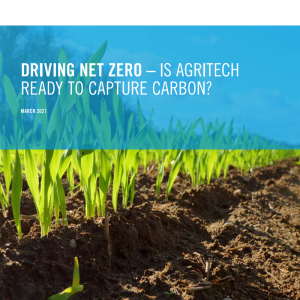
This report from Cambridge Consultants examines the technologies and data science techniques that can be used to measure soil carbon cheaply and accurate, enabling farmers to sell carbon sequestration credits.
The report notes that markets for carbon capture will need detailed measurements and assurance that the carbon sequestration would not otherwise have happened. Considerations for developing a quick, cheap yet reliable soil carbon measurement system include:
- Sensors. Between different sensor types, there is a trade-off between accuracy and the number of readings that can be taken each day. For example, conventional soil carbon measurement techniques that use combustion (for example, pyrolysis) are accurate because they can account for variations in carbon content at different depths in the soil, but they are also slow and labour-intensive because they take place in a laboratory. Satellite sensors can monitor large areas but are limited by resolution and not being able to monitor at different soil depths. Combined soil carbon models could use inputs from multiple forms of sensors.
- Sampling. The overall accuracy of soil carbon estimation depends not only on the sensors, but also on the spatial and temporal distribution of samples taken, since carbon content can vary within a single field. A balance must be found between accuracy and the increased cost of taking more samples.
- Interpreting the readings. Artificial intelligence algorithms for predicting total carbon stored based on the readings from samples and sensors have to be tuned to avoid overfitting (i.e. being accurate on one dataset but not working well on new datasets). Models may not be generalisable to new contexts or geographies.
Read the full report, Driving net zero – is agritech ready to capture carbon?, here or here (PDF link). See also the Table explainer How can we reduce food-related greenhouse gas emissions? and our 2017 report Grazed and Confused?







Post a new comment »